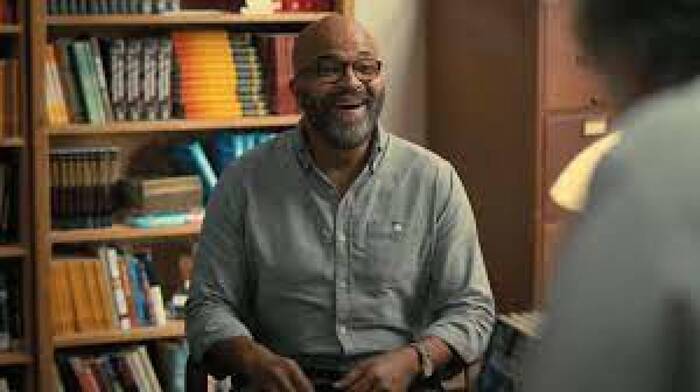“Never forget that a political, economic or religious crisis will be enough for women's rights to be questioned again.
It is never about acquired rights.
You must remain vigilant throughout your life.”
This premonitory phrase that the thinker Simone de Beauvoir left written, and that periodically circulates through social networks for its eternal validity, is also collected by Sandra Vizzavona in the pages of
Interruption
.
The memorial essay in which this lawyer recalls her two abortions – one at age 16 and the other at 24 – and which includes interviews with more than a dozen women who have resorted to it, arrived in Spanish bookstores this Wednesday with a translation by Laura Salas Rodríguez in the Tránsito publishing house.
Born in France in 1975 and a lawyer by profession, Vizzavona came into the world the same year that Minister Simone Veil succeeded in decriminalizing abortion in her country and four years after the
manifesto of the 343 bitches
was published , in which stars and personalities Cultural figures such as Catherine Deneuve or Beavouir herself, among others, publicly declared: "I have had an abortion."
Cover of 'Interrupción', by Sandra Vizzanova, edited by Tránsito.Cortes
Half a century after that milestone, in
Interruption
, Vizzavona assures that being part of the first legally protected generation to voluntarily interrupt their pregnancy has not freed women from the taboo and moral stigma that still weighs on those who abort.
"The right must be exercised discreetly, if not secretly," she denounces in her pages.
Through his book there are Catholic writers who feel "like a criminal" for having done it, adolescents who are called "sluts" from their immediate environment or adults who will be morally judged, such as "having thought about it before, girl" that a nurse tells him he spat at Vizzavona herself during her second abortion when she complained of a deep pain in her stomach as a reaction to the abortion pill: "For a long time I will blame myself for having been too vulnerable that day to break her face," he recalls about that moment,
Her essay is a polyphonic story against stigma, where she advocates "for a free and accessible abortion that frees women from guilt."
A text that cries out to "reinforce a right that cannot be acquired while society demands that those who exercise it repent of it."
For the editor of Tránsito, Sol Salama,
Interrupción
was a text to claim from the Spanish perspective: “Although in this country it is a right, a voluntary interruption of pregnancy is still something to hide today, something indecent for which we are punished and instructed. .
This feeling of failing, of dirt, leads us back to silence.
Our freedom passes through narrating ourselves”, she highlights.
The influence of Annie Ernaux
In his book, Vizzavona emphasizes that during his writing he could not detach himself from certain passages of
The Event
, by Annie Ernaux (published in Spanish by Tusquets Editores).
During the entire process, she practically slept hugging that essential story that Ernaux published in 2000 and in which she narrates the clandestine abortion that she experienced in 1963 while studying philology in Normandy.
The text has recently been made into a film in an adaptation by Audrey Diwan that won the Golden Lion at the Venice Film Festival and is currently being screened in Spanish cinemas.
“And, as usual, it was impossible to determine whether abortion was prohibited because it was wrong, or whether it was wrong because it was prohibited.
It was judged in relation to the law, the law was not judged, ”explains Ernaux about the termination of her unwanted pregnancy in his pages.
A quote that, precisely, opens the reading of
The word that begins with A
, the documented comic-essay on the social history of abortion signed by the journalist Elizabeth Casillas and the illustrator Higinia Garay in Astiberri.
Hers is a journey with a feminist perspective that ranges from basic information such as the different types of abortions that exist to questions such as "why rich women don't abort, they go on vacation" or "why poor women don't abort, they die" .
For Casillas, the stigmas are still present.
“You would be surprised how many times, when we have explained that we were preparing a book on abortion, there was an awkward silence or the intention was to quickly change the subject.
I don't even know how many times it happened to us, ”he recalls.
Prejudices are still present, even within the feminist movement.
“Many women have encouraged us to make the next one 'be more fun'.
It is something that surprises us, honestly, because
the word that begins with A
also has a sense of humor.
To talk about abortion, you don't have to shut yourself up in grief," the journalist highlights.
An inside page of 'The word that starts with A', by Elizabeth Casillas and Higinia Garay (Astiberri).
Movies where to abort without sadness
“The abortion narrative does not have to be solely linked to grief, sadness, shame, guilt or anger.
There are other stories, such as the one proposed by Elisabeth Falomir in the fanzine Abortos
Felices
(Episkaia), which advocate the celebration.
The party of what finally was not.
What a relief the freedom to be able to decide gives”, points out the journalist Noemí López Trujillo in the epilogue of
The word that begins with A
.
The new cultural narratives prove him right.
Parallel to the triumph in the cinema of the crude story of
The Event
in Venice and the no less harsh and multi-awarded
Never, Almost Never, Sometimes, Always,
by Eliza Hittman, a new batch of directors is exploring the theme of abortion and reproductive rights not from drama, but from pure comedy.
There's
Plan B
(2021), directed by Natalie Morales, in which two girls will do everything possible to get the morning-after pill (known as Plan B in the US) after one of them has her first sexual experience and falls asleep drunk after a party with the condom inside.
Or
Unpregnant
(2020, available on HBO Max), another comedy in which two high school enemies smooth things over when one of them discovers that she has gotten pregnant by a “silly” boyfriend.
a
road movie
of colleagues in which the director, Rachel Lee Goldenberg, wanted to break taboos.
“I am proud to show a story where a girl wants an abortion and she can get it.
I would be proud to contribute to a destigmatization or normalization of pregnancy termination, I went through one and it's nice to be able to pass on that comfort to the world, ”she told
The Playlist
publication when presenting the film.
Create new references to escape silence and shake off guilt.
Promotional image of 'Unpregnant' (2020, HBO Max).hbo
Exclusive content for subscribers
read without limits
subscribe
I'm already a subscriber



/cloudfront-eu-central-1.images.arcpublishing.com/prisa/V22MUF36WRCMFMYVPT2JTWATUU.jpg)











